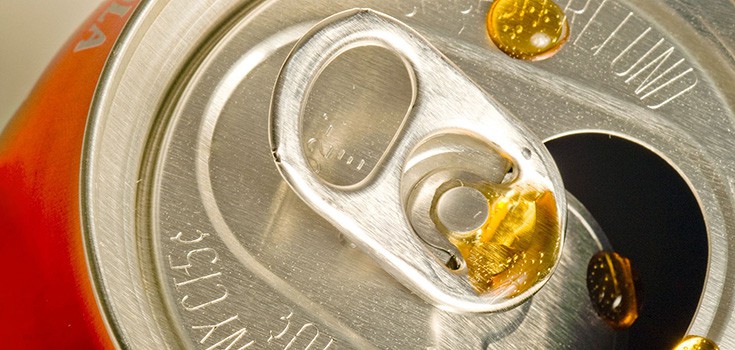Kids Get 7 Trillion Calories of Sugar from Cancer-Causing Beverages Each Year

Soda and sugary beverages make up 15 to 25 percent of the daily recommended caloric intake for children aged 2 to 19. That’s almost 300 calories a day and 7 trillion calories a year of sugar, one of cancer’s favorite substances.
Keeping Soda from Kids
Dr. Steven Gortmaker, Director of the Harvard School of Public Health Prevention Research Center, recently presented these statistics at the Obesity Society’s Annual Scientific Meeting in San Antonio.
Amidst protests from consumer rights die-hards and the beverage lobby, Gortmaker is urging the government to keep away sodas and sugary drinks from children, in the vein of Boston’s 2004 ban of selling sodas at public schools. According to Gortmaker, the kids’ calorie consumption has gone down by 45 calories, “just the level you need to start flattening out the obesity epidemic, if not to start turning it all around.”
Beverage Lobby Doesn’t Care
Mayor Michael Bloomberg’s ban on the sale of sugary drinks in containers bigger than 16 ounces in New York City is still fresh on the public’s mind. The beverage lobby—with the $24 billion in sales made to children fresh on their mind—expressed its displeasure thusly:
“We know, and science supports, that obesity is not uniquely caused by any single food or beverage. Thus, studies and opinion pieces that focus solely on sugar-sweetened beverages, or any other single source of calories, do nothing meaningful to help address this serious issue.”
Soda and Sugary Drinks Linked to Diseases
The beverage lobby is not wrong in stating that not one single source of calories is responsible, but they must be part of the dialogue in helping Americans regain healthy weights. Sodas are often sweetened in the United States with GMO corn-derived and mercury-containing high-fructose corn syrup—a sugar that a UCLA study recently pegged as feeding pancreatic cancer cells more rapidly than glucose or sucrose. Soda may also harnesses another cancer-causing chemical called caramel food coloring, which could be causing lung, liver, and thyroid cancer.
What’s more, soda and sugary drinks are linked to obesity on a genetic level. Parents might think about cutting back, too.
“Regular consumption of sugary beverages may amplify the genetic risk of obesity. In addition, individuals with greater genetic predisposition to obesity appear to be more susceptible to harmful effects of SSBs on BMI,” say the authors.
And in the midst of all this trash-talk on soda, people are wondering: Is diet soda bad for you? Unfortunately, going sugar-free doesn’t help either, since artificial sweeteners feed cancer cells as much as other sugars. Additionally, these artificial sweeteners like aspartame are linked to kidney health decline, heart attack and stroke, obesity, and damaged DNA.
The bottom line? We owe our future generations more than our own instant gratification.
Additional Sources:

Very few "sugary" drinks are sweetened with real sugar. Please name a few for me. Most "sugary" drinks are sweetened with high-fructose corn syrup. As we know, artificial sweeteners have many risks as well. Some feel that moderate use of drinks sweetened with real sugar may be the best choice.
What is your view on stevia? I do not notice any mention of it. Not an artificial sweetener, it is derived from a herb and it actually has beneficial properties, over a half dozen health benefits including reduced blood pressure and better BSL control. It's been used by billions of people in China for the past 30 years and is 100 times as sweet as sugar with a liquorice after taste. I substituted my sugar with this and I noticed improved energy levels in the first week.
“That’s almost 300 calories a day and 7 trillion calories a year of sugar, one of cancer’s favorite substances.” ??
300 x 365 = 109,500
Where did the 7 trillion come from? Is it the total of calories from sugary beverages by all kids age 2 – 19? Its kind of misleading as it isn’t explained where that number comes from.